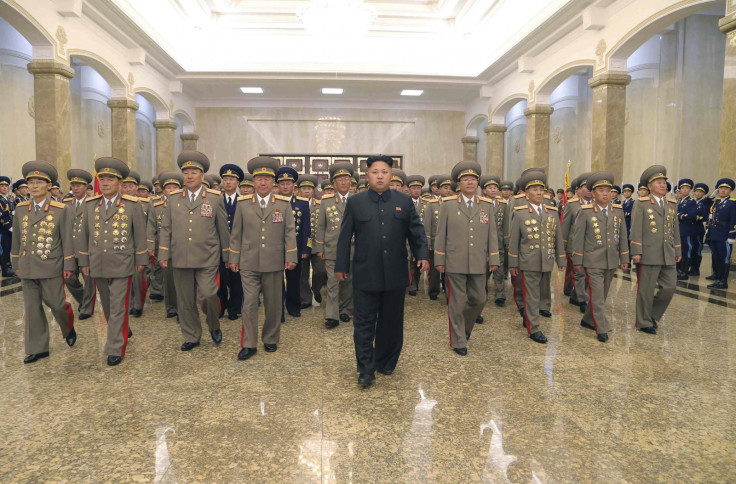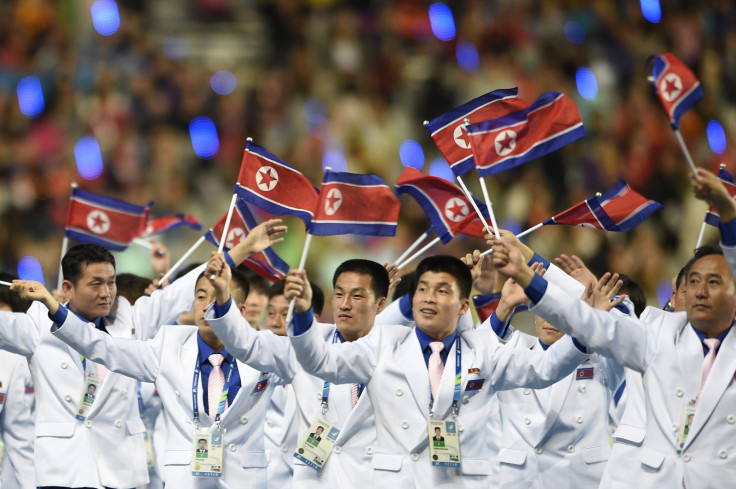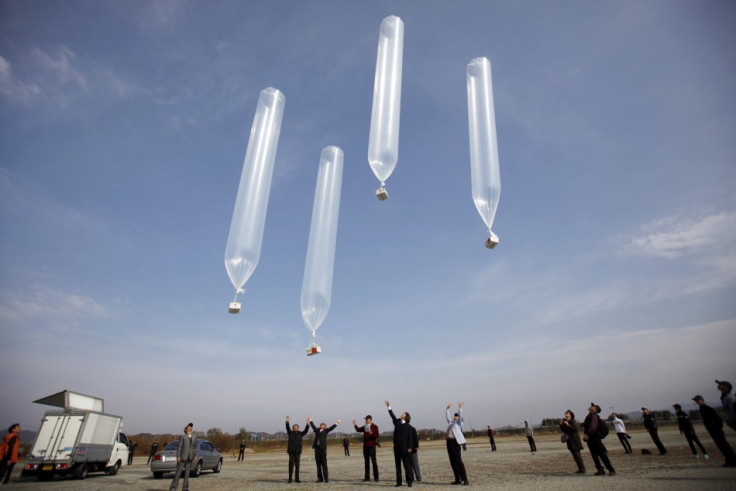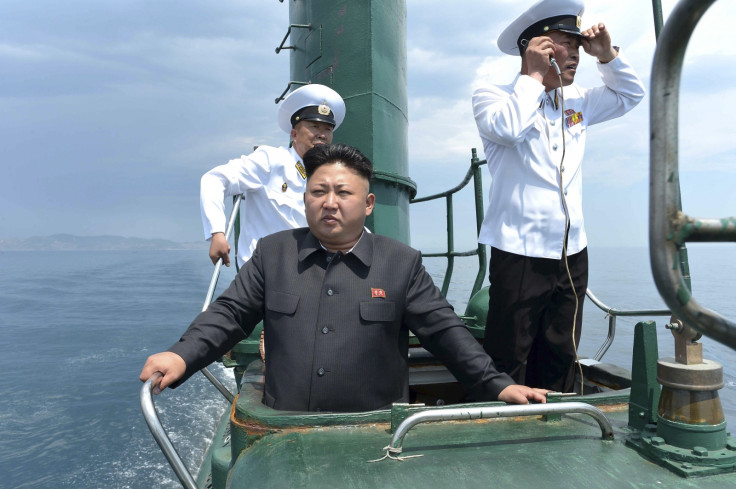Kim Jong-un Missing: Solving the Mystery of North Korea's Invisible Leader
What exactly is happening in North Korea, to cause its leader to remain hidden from the public?

Winston Churchill famously called Russia "a riddle wrapped in a mystery inside an enigma". North Korea is like that, without the transparency.
That's in normal times, which these are decidedly not, even by Pyongyang's standards. Several things are unusual at the moment: two big ones, plus others more minor. Our best hope of decoding these is to put the whole lot in the frame and try to join up the dots.
Where is Kim Jong-un?
There are two large oddities. The first is leader Kim Jong-un's invisibility: he's not been seen since 3 September.
The Young Marshal was thus absent from two major events: a rare autumn session of what passes for a parliament on 25 September, and then the founding anniversary of the ruling Workers' Party of Korea (WPK) on 9 October. He had not previously missed the latter since he inherited power on the death of his father Kim Jong-il in December 2011.

The other big oddity, by contrast, involved a rare visibility. On 2 October Kim's two top aides, plus a third senior cadre, suddenly pitched up in South Korea, just for the day. At 24 hours notice, they pretty much invited themselves to the closing ceremony of the Asian Games in Incheon. Team DPRK performed well, finishing 7th in the medals table, out of 45 countries.
Sport was a handy pretext but hardly the point. In their flying visit – on Kim's personal plane, be it noted – Hwang Byong-so (now the undisputed number two), Choe Ryong-hae (the former number two, down but clearly not out) and Kim Yang-gon (who runs policy toward South Korea and so had visited twice before, unlike the others) met almost everyone who is anyone in Seoul – except President Park Geun-hye, to whom they conveyed Kim's "heartfelt greetings". That makes a change from calling her a "prostitute", as North Korean media had done several times this year.
Those they did meet included the South's prime minister, its unification minister, and – most importantly – the president's national security adviser Kim Kwan-jin: a tough ex-general who served as defence minister under both Park and her hardline predecessor Lee Myung-bak.
In the past North Korea had dubbed Kim Kwan-jin as "Enemy Number One". Last year a lurid video featured an effigy of him being mauled by military attack-dogs. So it was quite something to see him smiling and chatting sotto voce with the uniformed Hwang, who among many other titles and ranks is a vice-marshal and political director of the Korean People's Army (KPA).
And maybe more than that. A further twist reckons the two oddities are connected, and that Hwang is now the real power in Pyongyang as he runs the WPK Organisation and Guidance Department (OGD). Kim Jong-il set up the OGD to boost his own rise to power, but on this theory his son does not command it. For its part the OGD may see this hot-headed youngster, who can't even control his own weight, as too much of a risk to have running the country.
Yet in a regime which lauds its Leader as the fount of all virtue and wisdom, surely the OGD needs Kim, at least as a figurehead? Bracketing that for now, let's go back to the known facts.
What we know
Since the Northern trio's flying visit to Incheon, North Korea has reverted to type by dashing the very hopes it had just raised. Essentially the weaker party on the peninsula – a fact often overlooked – Pyongyang wants to call the shots. Sometimes literally, as twice this past week.
On 7 October the two navies traded gunfire after a Northern patrol boat crossed the Northern Limit Line (NLL), the de facto sea border. This was serious, yet also choreographed. Unlike three fatal firefights since 1999 in these Western waters, they fired near each other – but not at.

The latest incident was a first, and hence riskier. North Korea had often warned it would not tolerate Southern activists (many of them defectors) who regularly send helium balloons over the border bearing anti-regime propaganda.
On 10 October North Korea made good its threat and shot at some balloons. A few rounds landed in South Korea, which fired back two hours later, suggesting calculated deliberation. First reported as an artillery exchange, in fact apparently machine guns were used; again implying a degree of restraint, or at least careful calibration.
Although all this had a ritual element, it's lucky there were no casualties. But Seoul confronts a difficult dilemma, at once moral and practical: in a free society, how should defectors' right to strike back at the tyranny they fled, be weighed against other factors, such as local residents who view them as a dangerous nuisance (a fear just confirmed), and now an incipient peace process?
At Incheon the two sides agreed to fresh high-level talks, last held in February without result. No date was set, and Pyongyang has since warned that balloon launches may jeopardise this. It has also resumed criticising (but not insulting) Park for "nasty" comments, which in fact were routine remarks to a Vietnamese visitor criticising the North for its nuclear threat.
Depressingly reassuring
All this I find both depressing and reassuring. Depressing, because North Korea is back to its old trick of blowing hot and cold. Yet also reassuring, since it suggests a coherent if annoying game plan – which means someone is in charge, rather than chaos and uncertainty reigning.
As of now I still think that someone is Kim Jong-un. The illness hypothesis – especially in its latest variant, that an existing leg injury (in July Kim was seen on TV limping) was made a lot worse by strenuous visits to army bases, or even horseplay by the enthusiastic but wildly unfit Supreme Commander – suffices to explain a prolonged absence. A limp is bad enough, but a wheelchair or hospital bed is simply incompatible with the leader's dashing public persona.

Then again, the trio who came South (and why all of them?) neither looked nor behaved like mere emissaries. To posit a coup seems far-fetched, but more subtle power plays may be going on. It is highly plausible that such experienced elite cadres find the new boss a handful, and a loose cannon: someone more likely to rock the boat than skilfully steer the ship of state.
That is a big problem. After three years Kim Jong-un has yet to meet a single foreign leader, even China's Xi Jinping. Xi pays the bills, but flirts with Park Geun-hye instead. Kim prefers frat-boy companions like Dennis Rodman to his fellow heads of state. Might he in truth be as uncomfortable with the power thrust upon him as the late, unlamented, Baby Doc Duvalier?
Then again, for years his father's reclusiveness was interpreted similarly – until Kim Jong-il chose to come out, impressing Madeleine Albright and others with his grasp of world affairs and even a certain wry wit. Kim Jong-un is not in his dad's league, for sure. But we do not yet know how incompetent he is, or rather (crucially) how the Pyongyang power elite rates him.
Throughout history, wily ministers have faced young kings who inherit power they cannot yet handle. Strategies and outcomes vary. Besides subtle manoeuvring and de rigueur deference (whatever the real power relations), there is also usually backstabbing – and often bloodshed. Kim's uncle Jang Song-thaek already paid the price, but whodunit: his nephew, or the OGD?
We have surely not seen the last of Kim Jong-un. But, health aside, he has a problem: to some of the powerful retainers supposed to do his bidding, he is a problem. The struggle continues.
Aidan Foster-Carter is Honorary Senior Research Fellow in Sociology & Modern Korea at Leeds University, and a freelance writer and consultant on Korean affairs. He has followed North Korea for 46 years.
© Copyright IBTimes 2025. All rights reserved.





















